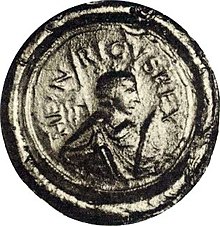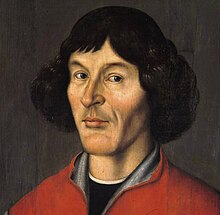May 24 is the 144th day of the year (145th in leap years) in the Gregorian calendar. There are 221 days remaining until the end of the year.
Holidays
- Aldersgate Day/Wesley Day (Methodism)
- Battle of Pichincha Day (Ecuador)
- Bermuda Day (Bermuda)
- Christian feast day:
- Anna Pak Agi (one of The Korean Martyrs)
- David I of Scotland
- Donatian and Rogatian
- Jackson Kemper (Episcopal Church)
- Joanna
- Sarah (celebrated by the Romani people of Camargue)
- Vincent of Lérins
- May 24 (Eastern Orthodox liturgics)
- Commonwealth Day (Belize)
- Earliest day on which El Colacho tradition can fall, while June 27 is the latest; celebrated on Sunday after Corpus Christi. (Castrillo de Murcia, near Burgos)
- Independence Day, celebrates the independence of Eritrea from Ethiopia in 1993.
- Lubiri Memorial Day (Buganda)
- Saints Cyril and Methodius Day (Eastern Orthodox Church) and its related observance:
- Victoria Day; celebrated on Monday on or before May 24. (Canada), and its related observance:
- National Patriots Day or Journée nationale des patriotes (Quebec)
History

In 919, The nobles of Franconia and Saxony elect Henry the Fowler at the Imperial Diet in Fritzlar as king of the East Frankish Kingdom.
In 1218, The Fifth Crusade leaves Acre for Egypt.
In 1276, Magnus Ladulås is crowned King of Sweden in Uppsala Cathedral.
In 1276, A tax is levied against all Jews in England and all Jews were required to wear a yellow badge.
In 1487, Imposter Lambert Simnel, pretender to English throne, was crowned as King Edward VI of Dublin in a ceremony. The ten-year-old is crowned in Christ Church Cathedral in Dublin, Ireland, in a bid to threaten King Henry VII‘s reign.

In 1543, Nicolaus Copernicus publishes proof of a sun-centered solar system “De Revolutionibus“, he dies just after publication.
In 1595, Nomenclator of Leiden University Library appears, the first printed catalog of an institutional library.
In 1607, One hundred English settlers disembark at Jamestown, the first English colony in America.
In 1621, The Protestant Union is formally dissolved.
In 1624, After years of unprofitable operation Virginia’s charter is revoked and it becomes a royal colony.
In 1626, Peter Minuet of the Dutch West India Trading Company bought the Island of Manhattan from the Carnarsee Indians reportedly for blankets, cattle, and various trinkets valued in all at $24.
In 1667, The French Royal Army crosses the border into the Spanish Netherlands, starting the War of Devolution opposing France to the Spanish Empire and the Triple Alliance.
In 1689, The English Parliament passes the Act of Toleration protecting Protestants. Roman Catholics are intentionally excluded.
In 1738, John Wesley is converted, essentially launching the Methodist movement; the day is celebrated annually by Methodists as Aldersgate Day and a church service is generally held on the preceding Sunday.
![[1]](https://upload.wikimedia.org/wikipedia/commons/c/c0/JamesOtisJr_by_Blackburn.jpg)
In 1764, Bostonian lawyer James Otis Jr. denounces “taxation without representation” and calls for the colonies to unite in demonstrating their opposition to Britain’s new tax measures.
In 1775, John Hancock — the same guy who would sign his name so big on the Declaration of Independence — was elected president of the Congress.
In 1798, The Irish Rebellion of 1798 led by the United Irishmen against British rule begins.
In 1813, South American independence leader Simón Bolívar enters Mérida, leading the invasion of Venezuela, and is proclaimed El Libertador (“The Liberator”).
In 1822, Battle of Pichincha: Antonio José de Sucre secures the independence of the Presidency of Quito.
In 1830, the first passenger railroad service in the United States began service between Baltimore and Elliott’s Mills, Maryland.
In 1830, “Mary Had a Little Lamb” by Sarah Josepha Hale is published.
In 1830, The first revenue trains in the United States begin service on the Baltimore and Ohio Railroad between Baltimore, and Ellicott’s Mills, Maryland.
In 1832, The First Kingdom of Greece is declared in the London Conference.
In 1844, America’s first telegraph line formally opens when Samuel Morse sends the message “What hath God wrought” (a biblical quotation, Numbers 23:23) from the Old Supreme Court Chamber in the United States Capitol to his assistant, Alfred Vail, in Baltimore, Maryland, to inaugurate the first telegraph line.
In 1846, General Zachary Taylor captures Monterrey in Mexican War.
In 1856, The Pottawatomie Massacre took place in Kansas. John Brown and his men kill five slavery supporters at Pottawatomie Creek, Kansas.
In 1861, American Civil War: Union troops occupy Alexandria, Virginia.
In 1861, Major General Benjamin Butler declares slaves “contraband of war”.
In 1883, The Brooklyn Bridge in New York City is opened to traffic after 14 years of construction by President Arthur and Governor Cleveland. in N.Y. to link Brooklyn to Manhattan.
In 1884, Anti-Monopoly party & Greenback Party forms People’s Party in the US.

In 1895, Henry Irving becomes the first person from the theatre to be knighted.
In 1900, Second Boer War: The United Kingdom annexes the Orange Free State.
In 1915, Italy declares war on Austria-Hungary.
In 1915, Thomas Edison announces the invention of the telescribe to record telephone conversations.
In 1921, The trial of Sacco and Vanzetti opens.
In 1930, Amy Johnson lands in Darwin, Northern Territory, becoming the first woman to fly solo from England to Australia (she left on May 5 for the 11,000 mile flight).
In 1935, The first night game in Major League Baseball history is played in Cincinnati, Ohio, with the Cincinnati Reds beating the Philadelphia Phillies 2–1 at Crosley Field.
In 1939, First issue of Fashizmi is published in Tirana.
In 1940, Igor Sikorsky performs the first successful single-rotor helicopter flight.
In 1940, Acting on the orders of Soviet leader Joseph Stalin, NKVD agent Iosif Grigulevich orchestrates an unsuccessful assassination attempt on exiled Russian revolutionary Leon Trotsky in Coyoacán, Mexico.
In 1940, German tanks reach Atrecht France.

In 1941, World War II: In the Battle of the Atlantic, the German Battleship Bismarck sinks then-pride of the Royal Navy, HMS Hood, killing all but three crewmen.
In 1943, Admiral Donitz continued to push for increased U-boat construction and entertained the notion that further technological developments would tip the war once more in Germany’s favour, briefing the Führer to that effect.
In 1943, The Holocaust: Josef Mengele becomes chief medical officer of the Auschwitz concentration camp.
In 1948, Arab–Israeli War: Egypt captures the Israeli kibbutz of Yad Mordechai, but the five-day effort gives Israeli forces time to prepare enough to stop the Egyptian advance a week later.
In 1954, IBM announces the development of a vacuum tube “electronic” brain, capable of more than 10 million operations an hour.
In 1954, the first rocket attained an 150 mi (241 km) altitude in White Sands, NM.
In 1956, Conclusion of the Sixth Buddhist Council on Vesak Day, marking the 2,500 year anniversary after the Lord Buddha‘s Parinibbāna.
In 1956, The first Eurovision Song Contest is held in Lugano, Switzerland.
In 1958, United Press International is formed through a merger of the United Press and the International News Service.
In 1959, the first house with a built-in bomb shelter was exhibited in Pleasant Hills, Pa.
In 1958, United Press International is formed through a merger of the United Press and the International News Service.
In 1960, Following the 1960 Valdivia earthquake, the largest ever recorded earthquake, Cordón Caulle begins to erupt.
In 1961, American civil rights movement: Freedom Riders are arrested in Jackson, Mississippi, for “disturbing the peace” after disembarking from their bus.
In 1961, Cyprus joins the Council of Europe.
In 1962, Project Mercury: American astronaut Scott Carpenter orbits the Earth three times in the Aurora 7 space capsule.
In 1963, Baldwin–Kennedy meeting on race relations in the US
In 1967, Egypt imposes a blockade and siege of the Red Sea coast of Israel.
In 1968, FLQ separatists bomb the U.S. consulate in Quebec City.
In 1970, The drilling of the Kola Superdeep Borehole begins in the Soviet Union.
In 1976, The London to Washington, D.C., Concorde service begins.
In 1976, The Judgment of Paris takes place in France, launching California as a worldwide force in the production of quality wine.
In 1981, Ecuadorian president Jaime Roldós Aguilera, his wife, and his presidential committee die in an aircraft accident while travelling from Quito to Zapotillo minutes after the president gave a famous speech regarding the 24 de mayo anniversary of the Battle of Pichincha.
In 1982, Liberation of Khorramshahr: Iranians recapture of the port city of Khorramshahr from the Iraqis during the Iran–Iraq War.
In 1988, Section 28 of the United Kingdom’s Local Government Act 1988, a controversial amendment stating that a local authority cannot intentionally promote homosexuality, is enacted.
In 1991, Israel conducts Operation Solomon, evacuating Ethiopian Jews to Israel.
In 1992, The last Thai dictator, General Suchinda Kraprayoon, resigns following pro-democracy protests.
In 1993, Eritrea gains its independence from Ethiopia.
In 1994, Four men convicted of bombing the World Trade Center in New York in 1993 are each sentenced to 240 years in prison.
In 1999, The International Criminal Tribunal for the former Yugoslavia in The Hague, Netherlands indicts Slobodan Milošević and four others for war crimes and crimes against humanity committed in Kosovo.
In 2000, Israeli troops withdraw from southern Lebanon after 22 years of occupation.
In 2001, Mountaineering: Temba Tsheri, a 16-year-old Sherpa, becomes the youngest person to climb to the top of Mount Everest.
In 2001, The Versailles wedding hall disaster in Jerusalem, Israel kills 23 and injures over 200.
In 2002, Russia and the United States sign the Moscow Treaty.
In 2014, A 6.4 magnitude earthquake occurs in the Aegean Sea between Greece and Turkey, injuring 324 people.
In 2014, At least three people are killed in a shooting at Brussels’ Jewish Museum of Belgium.


